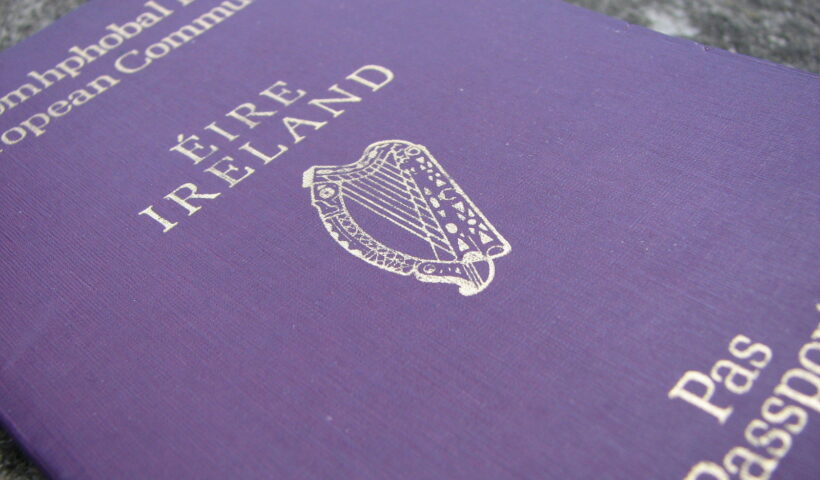In Fragments d’un discours amoreux, Roland Barthes presents “absence / absence” as integral to lovers’ discourse, defining it as such: “[a]ny episode of language which stages the absence of the loved object—whatever its cause and its duration—and which tends to transform this absence into an ordeal of abandonment” (Barthes 13). Staging the absence of loved ones is a central theme in the work of Maggie O’Farrell, whose novels frequently contemplate loss and bereavement, processes of remembering and forgetting, the dynamics and role allocations within the family, and the preciousness and fragility of life itself.
View More “Remember me”: Significant Absences and the Fragility of Family in Maggie O’Farrell’s HamnetCategory: Issue 9.1 – Special Issue – “C21st Irish Women’s Writing”
Alluvium Editorial 9.1: Twenty-First Century Irish Women’s Writing
In the first two decades of the twenty-first century, Irish literature has been marked by a seemingly unprecedented proliferation of writing by women. From Sally Rooney’s global domination on bestseller lists to Anna Burns’ Booker Prize win, Irish women’s writing is flourishing within and without the borders of the island. This special issue focusing on twenty-first century Irish women’s writing emerges out of a desire to survey and interrogate this literary fecundity.
View More Alluvium Editorial 9.1: Twenty-First Century Irish Women’s WritingTrauma, Disremembering and Postmemory in Nuala Ní Dhomhnaill’s “The Fifty Minute Mermaid”
The widely acclaimed contemporary Irish-language poet Nuala Ní Dhomhnaill first published her long sequence of poems about mermaids as the closing section of her 1998 collection Cead Aighnis. The sequence was later transformed into the bilingual volume, entitled The Fifty Minute Mermaid (2007), with translations by Paul Muldoon, one of Ní Dhomhnaill’s most prolific translators.
View More Trauma, Disremembering and Postmemory in Nuala Ní Dhomhnaill’s “The Fifty Minute Mermaid”Uncertain Existences: Crime and Identity in Tana French’s “The Witch Elm”
Crime fiction narrates inquests into the past, interrogations of place and memory undertaken in order to construct narratives of history—stories about what took place, who was involved, and why. The protagonist, most frequently a detective, exhumes evidence and analyses it in order to construct a chain of causality that attempts to uncover the truth about the present by re-examining the knowledge of the past. This epistemological orientation of the genre amplifies its ability, as popular literature, to provide cultural reflection.
View More Uncertain Existences: Crime and Identity in Tana French’s “The Witch Elm”From the Ashes: The Celtic Phoenix, Anna Burns’ “Milkman” and Sally Rooney’s “Normal People”
Paul Howard’s 2014 play Breaking Dad did not invent the phrase ‘the Celtic Phoenix’. American writer Dennis Frantsve self-published a thriller novel of the same title in 2004 (Amazon.com); in September 2008, The Irish Independent printed a gossip article entitled “Celtic Phoenix emerges… in lipstick and heels” (Egan); in 2010, a Bulgarian Irish dance troupe launched their website celtic-phoenix.com; and in 2011, Wicklow sculptor Thomas Flynn entitled a bog-oak sculpture “The Celtic Phoenix” (Stafford). “The Celtic Phoenix” was a phrase well-suited to post-crash discourse surrounding Irishness.
View More From the Ashes: The Celtic Phoenix, Anna Burns’ “Milkman” and Sally Rooney’s “Normal People”‘Complicating Things with Fancy Footwork’: The Ethics of Difficulty in Anna Burns’ “Milkman”
Since its publication in 2018, critics have noted the many challenges posed by Anna Burns’ Milkman, either celebrating or condemning the award-winning novel for its perceived difficulty. Milkman offers a digressive first-person recounting of a young woman being stalked by an older republican paramilitary during the Northern Irish Troubles. The novel documents shocking instances of political violence and sexual abuse, and its complex prose is immersive and unrelenting: details and observations are piled together, and the narrative pacing risks burying even the most harrowing details in a rush of knotty prose, a risk heightened by the lack of tonal complexity.
View More ‘Complicating Things with Fancy Footwork’: The Ethics of Difficulty in Anna Burns’ “Milkman”‘At war with her body’: the threat of pregnancy in the novels of Anna Burns
Before Amelia, the protagonist of Anna Burns’ debut novel, No Bones, is raped by her brother and his girlfriend, she is described from the perspective of the latter, who deems her “outrageously, sexually thin,” with the “arm-swinging vigour all six-stone hunger-strikers are very keen on” (123). In 1970s North Belfast, Amelia’s eating disorder is seen as vain compared to the sacrifices of political prisoners. This prioritisation of male suffering reflected in much scholarship on the Troubles. Alan Feldman’s Formations of Violence, for example, analyses the Northern Irish body under state and paramilitary power—imprisoned, beaten, starving or killed—but that body is exclusively male.
View More ‘At war with her body’: the threat of pregnancy in the novels of Anna BurnsThe Pen is Mightier: Narrative power in contemporary Irish women’s writing
The contemporary moment in Irish women’s writing has been recognised as a space of “extraordinary dynamism” for women negotiating the changing landscape of gender in Ireland (Bracken and Harney-Mahajan 3). On the heels of the 2018 repeal of the Eighth Amendment, bodily autonomy and, as pertains to this discussion, narrative autonomy are significantly prevalent in both the public consciousness and contemporary writing. This article is concerned with the way autonomy and power are wielded in the use of narrative, taking as examples Emilie Pine’s personal essay collection, Notes to Self (2018), and Nicole Flattery’s “Abortion, A Love Story” from short story collection Show Them A Good Time (2019).
View More The Pen is Mightier: Narrative power in contemporary Irish women’s writingEimear McBride’s “Gob”
Early in her novel A Girl Is a Half-Formed Thing (2013), Eimear McBride’s unnamed narrator Girl describes her first pint, “a Guinness for want of not knowing what else,” after moving to Dublin for college (83). She is egged on by a new friend, a chatty type with “big red gums” who is fond of talking about her famous father’s globetrotting. As in the rest of the work, the scene moves back and forth in Girl’s consciousness between thought and speech, the words of one and the words of another.
View More Eimear McBride’s “Gob”‘Where are you from originally’: The cruel optimism of the precarious Irish public sphere in Melatu Uche Okorie’s “Under the Awning”
In “Dual Citizenship” Denise Chaila declares that “there are some people who will spend their whole lives, looking for a definition of home.” Since the citizenship referendum of 2004, many of those born in Ireland are no longer entitled to call the country of their birth their home. Melatu Okorie’s debut collection This Hostel Life (2018) gives voice to this precarious public sphere of contemporary Ireland.
View More ‘Where are you from originally’: The cruel optimism of the precarious Irish public sphere in Melatu Uche Okorie’s “Under the Awning”









